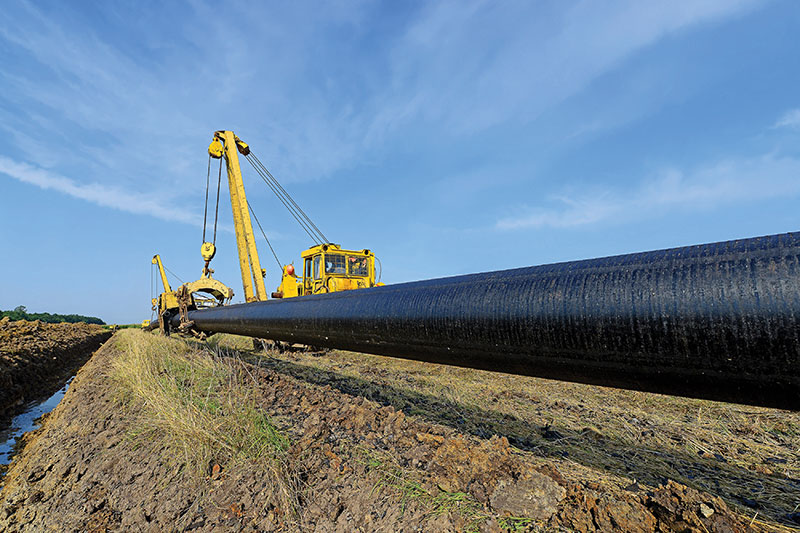
(Reuters) — Canada's TC Energy on Friday said a 14,000-barrel oil spill from its Keystone pipeline in rural Kansas in December was primarily due to a progressive fatigue crack, which originated during the construction of the pipeline.
The Calgary-based company released the findings after receiving an independent third-party root cause failure analysis (RCFA), as required by regulators.
Keystone's spill into a Kansas creek was the biggest U.S. oil spill in nine years and prompted a 21-day shutdown of a portion of the 622,000 barrel-per-day pipeline, which ships crude from Alberta to U.S. refineries.
TC said it has recovered 98% of the spilled product from the pipeline and cleaned up 90% of the Mill Creek shoreline.
"We are unwavering in our commitment to fully remediate the site and are taking action on the recommendations from the RCFA," said Richard Prior, president of liquids pipelines at TC Energy in a statement.
The company said it is now investigating other sites along Keystone with similar characteristics, performing extra inspections on 300 miles (482 km) of the pipeline, and reviewing design guidelines, construction and operations.
TC said the RCFA report found the fatigue crack came from a girth weld connecting a manufactured elbow fitting to the section of pipe constructed across Mill Creek. The girth weld was completed at a fabrication factory and met applicable standards.
During construction, the pipe segment came under "bending stresses" that initiated a crack in the girth weld and also led to a deformation in the elbow fitting and a wrinkle in the adjacent piping, TC said. The design of the weld transition made the pipe in that location more susceptible to bending.
"This resulted in the initiation of a circumferential crack in the weld, which led to failure through operations after over a decade," TC said.
The company said the RCFA findings are consistent with its own investigation released in February.
TC also noted the segment of pipeline where the leak occurred had always operated within its temperature and pressure design limits, and never exceeded 72% of its Specific Minimum Yield Strength (SMYS).